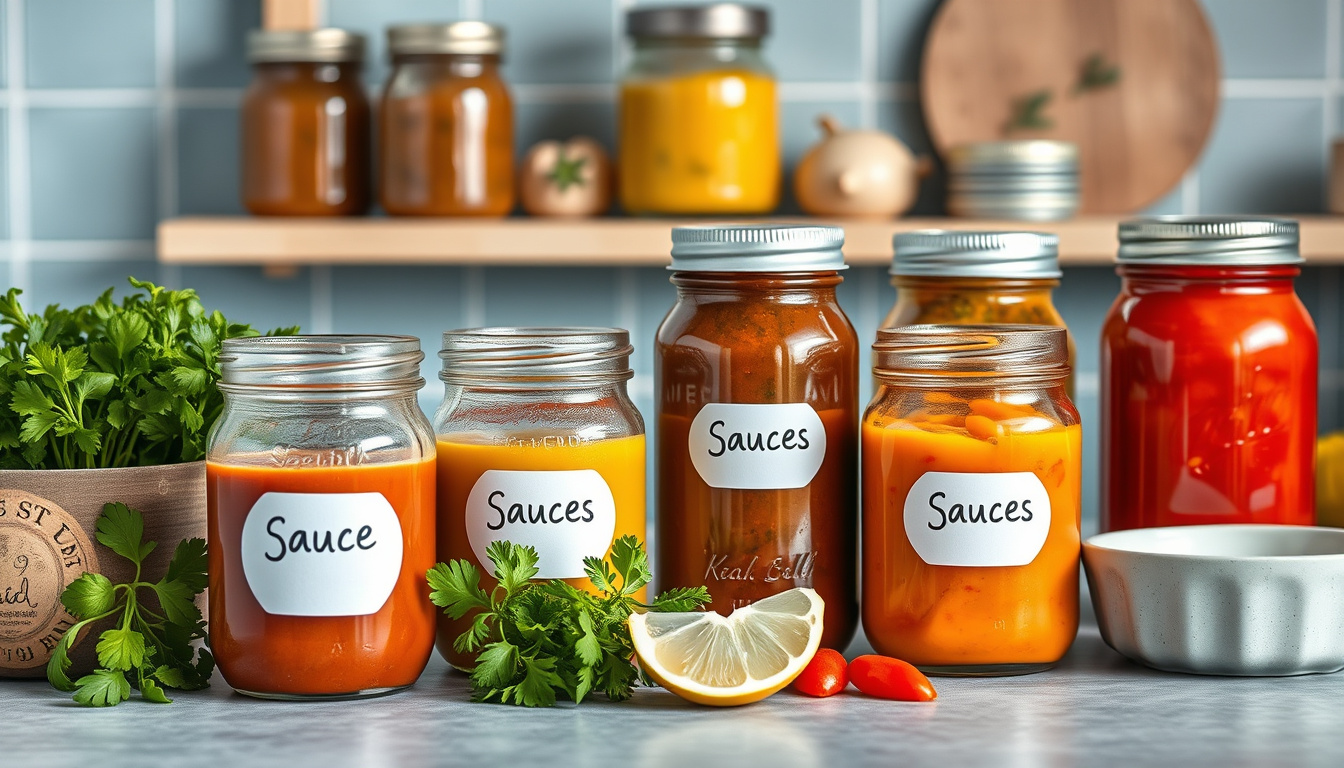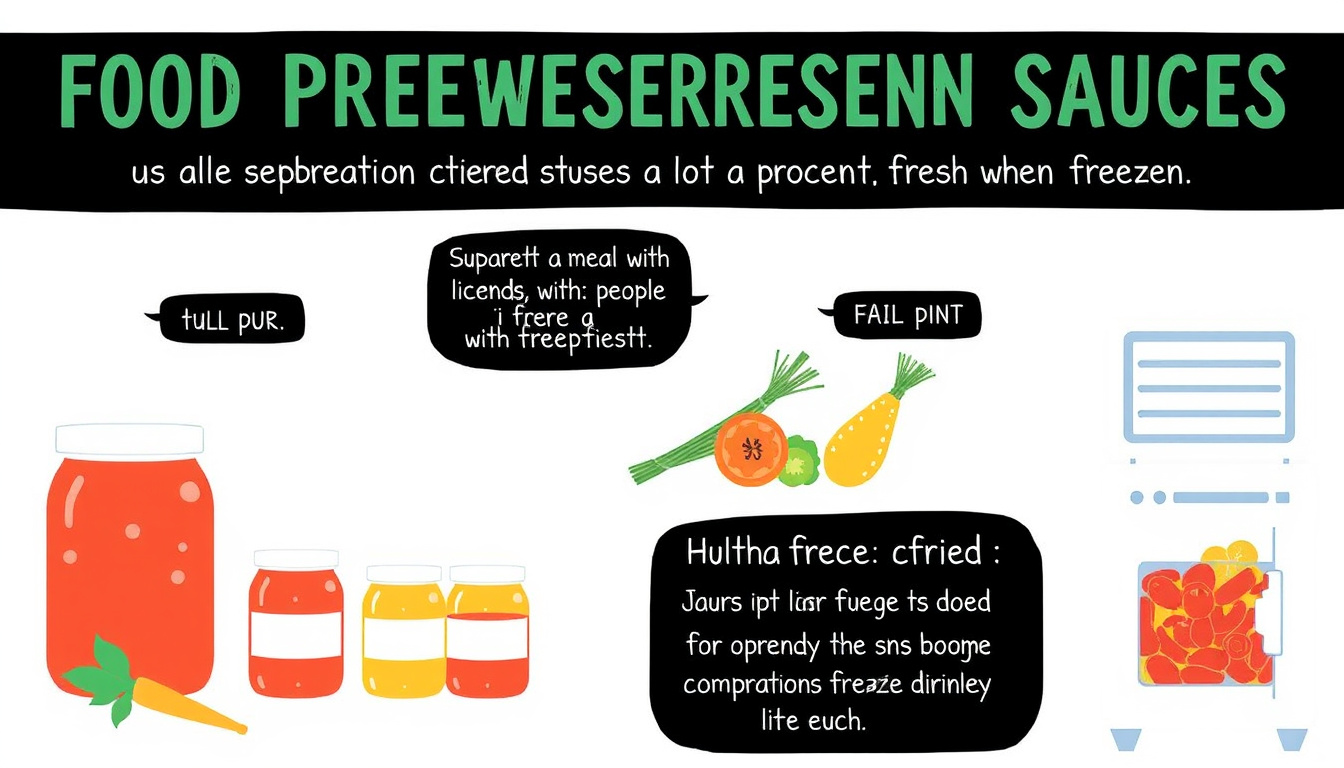Freezing sauces is a fantastic way to save time and prevent waste in the kitchen. However, not all sauces are created equal when it comes to freezing. The delicate balance of ingredients in certain sauces can lead to undesirable separation or altered textures once thawed. Understanding how different components react to freezing can help you preserve your culinary creations effectively. Here are some expert tips to avoid freezing food with sauces that might separate.
Understanding Sauce Separation
When sauces are frozen, particularly those that involve emulsions or dairy, their components can freeze at different rates. This results in the separation of oils and liquids, causing undesirable textures and flavors when the sauce is thawed. Common sauces that are prone to this problem include:
-
Emulsified Sauces: These sauces, such as hollandaise or mayonnaise, are created by blending fat with liquid (like oil and vinegar or egg yolk). When frozen, the liquid and fat separate, ruining the smooth texture that defines them.
-
Cream-Based Sauces: Sauces like Alfredo or cream of mushroom can also break down in the freezer. The emulsifying properties of dairy and fats can be compromised, leading to a gritty or curdled consistency upon thawing.

Tips to Avoid Separation
-
Use Stabilizers: Ingredients like xanthan gum or guar gum can help stabilize sauces when freezing. These thickeners improve the sauce’s ability to maintain its texture and resist separation by binding liquids and fats more cohesively.
-
Choose Freezer-Friendly Ingredients: Opt for starches such as tapioca or specialized cold-soluble thickeners like Ultra-sperse 3. These additives do not lose their thickening properties during freezing, making them better suited for sauces intended for freezing.
-
Portion Wisely: Instead of freezing large batches, consider making smaller portions of emulsified or cream-based sauces. This approach reduces the chances of freezing and thawing multiple times, which can diminish the sauce’s quality.
-
Refrigerate Instead of Freezing: For particularly delicate sauces, it’s often better to refrigerate them and consume them within their shelf life. Many emulsified sauces can retain their integrity in the fridge much better than in the freezer.
-
Gentle Reheating Techniques: If you have to freeze sauces, heat them gently after thawing. Using techniques like a double boiler helps to evenly distribute heat, preventing the sauce from breaking. When dealing with separated cream sauces, vigorous whisking at room temperature can often restore their original texture.
-
Experiment with Ingredients: If you’re determined to freeze a sauce that traditionally separates, try modifying the recipe slightly. For instance, adding more emulsifiers can help to preserve the consistency after thawing.
Sauces to Avoid Freezing
Certain sauces should be labeled as off-limits for freezing. Avoid freezing:
- Hollandaise and Béarnaise: These sauces can never truly be restored to their original state after freezing, due to their emulsified nature.
- Cream Sauces: Similar to hollandaise, cream-based sauces lose their creamy texture and can become gritty when frozen.
- Reduced Meat Sauces: Sauces like demi-glace may separate as fat content can rise to the top and appear greasy after thawing.
Conclusion
While freezing sauces can be a time-saving kitchen strategy, it’s essential to know which types of sauces are suitable for the freezer. By using stabilizers, modifying recipes, and employing gentle reheating techniques, you can avoid the common pitfalls of separation. Remember, some sauces are best enjoyed fresh, so maintaining a balance between convenience and culinary quality is key. Happy cooking!
>> Chest Freezer Reviews <<
>> Upright Freezer Reviews <<

